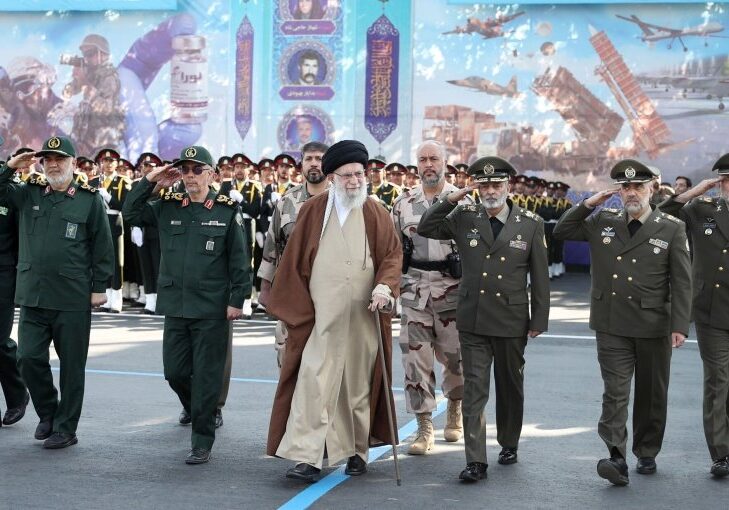Australia/Israel Review
Why Is the Islamist Death Cult So Appealing?
May 2, 2016 | Paul Berman

Paul Berman
Why do people who are not clinically crazy throw themselves into campaigns of murder and suicide? The sociological answer to this question assumes a pettiness in human nature, such that even the slightest of humiliations and misfortunes may be regarded as sufficiently devastating, under certain conditions, as to sweep aside the gravest of moral considerations.
I prefer to invoke the history of ideas. People throw themselves into campaigns of murder and suicide because they have come under the influence of malign doctrinal systems, which appear to address the most profound and pressing of human problems – and do so by openly rebelling against the gravest of moral considerations. Doctrines of this sort render their adepts mad, not in a clinical sense but in an everyday sense. And the power to drive people mad comes precisely from the profundity, or the seeming profundity – which is what everyone else fails to see.
The Islamist movement – the case at hand – got its start in Egypt circa 1930 in the form of the Muslim Brotherhood, as a puritanical religious campaign devoted to the encouragement of rectitude; and rectitude is all that some people notice about Islamists today. The movement came out in favour of the decolonisation of Egypt, the utopian resurrection of the Islamic caliphate of yore, and, most of all, opposition to Zionism, which transformed the movement into a mass political phenomenon; and anti-colonialism is all that still other people see. But the movement also took on a philosophical dimension.
The Islamist theoreticians stipulated the existence of an authentic human identity, which, in their understanding, means the kind of human existence that you see in the pages of the Koran, where life is conducted sombrely and piously according to laws laid down by God. The theoreticians maintained that authentic human identity, in its Koranic perfection, has come under attack, assailed by a sludge-tide of modern Western cultural influence, with devastating effects. The theoreticians ascribed the sludge-tide to a conspiracy mounted by Christian Crusaders and Zionists for the purpose of annihilating Islam. The theoreticians affirmed that, by means of preaching and jihad, the Islamists will be able to defeat the diabolical conspiracy and will be able to reconstruct a properly Islamic society along the 7th-century lines of ancient Medina. But most of all they affirmed that, by doing so, the Islamists will be able to conjure back into existence the authentic human identity, and they will be able to resolve the modern psychological dilemma.
The Islamists, considered as a political movement, have splintered over the decades into the factions and tendencies that you would expect of any very large international movement, sometimes along denominational lines, Sunni and Shi’ite, sometimes according to different notions of urgency; and the factions want to kill each other, which leads some people to suppose that a single political movement does not exist. The Brotherhood in Egypt evolved long ago into a go-slow faction. (The Brotherhood’s intellectual leader, Sheikh Yusuf al-Qaradawi, who is regarded as a “centrist”, took the view a couple of years ago when the Brothers were in power in Egypt, that Koranic punitive amputations should be revived only after five years had passed, instead of immediately.) And the Islamic State has arisen in Syria and Iraq to offer a go-fast alternative (which it advertises by conducting its ritual beheadings on video, for the universal edification). But slow and fast are tactical considerations. In the long run, everyone among the Islamists, centrists and hot-heads ecumenically alike, agrees that, in the revolutionary future, the caliphate of yore will be re-established – though naturally this development can be interpreted modestly or grandiosely. And everyone agrees on the philosophical criticism of modern alienation.
Do these Islamist ideas and urgings represent a throwback to earlier times? French philosopher Michel Foucault thought so. He had the opportunity to observe firsthand the Islamist revolution in Iran in its early stages, and he figured that he was witnessing an event resembling the millenarian Christian insurgencies of Thomas Münzer and Savonarola in the early modern era. Which might be true, to a degree.
Still, I think it more useful to regard the movement as one more totalitarian upsurge of the 20th century, after the Stalinists and the Fascists and the Nazis, sometimes with direct influences from each of those earlier causes. Notably influential on the Islamists has been Catholic fascism in its French version – namely, the Catholic monarchism of the Vichy scientist Alexis Carrel, who dreamed of restoring the medieval grandeurs. (Meanwhile he advocated gas chambers as a way of getting rid of inferior people – even as he worked at Rockefeller University in New York!) To abolish modern alienation was precisely Carrel’s concern.
The Islamist mania about diabolical Jewish conspiracies, as defined by The Protocols of the Elders of Zion, represents merely one more influence from Europe. It is odd to observe that, in the Islamist literature, the Protocols figure just as prominently as they did among the Nazis, not just in the writings of semi-literates. Pro-Nazi philosopher Martin Heidegger took the Protocols seriously as an expression of the diabolical conspiracy, and so did Sayyid Qutb, who was the Heidegger of the Islamists. Sayyid Qutb’s brother Muhammad was the professor of bin Laden, who himself was the leader in Afghanistan of an Algerian jihadi named Djamel Beghal, who became the guru of Chérif Kouachi, one of the Paris jihadis, during Kouachi’s time in a French prison.
And the Islamists, like their totalitarian counterparts in Europe, sum up these various impulses and inspirations by embracing a cult of death, which brings them to the thrilling crossroads of nihilism and the eternal. Maybe the Islamists have outdone everyone else on this question, even if, so far, they have lacked the industrial capacities of the Nazis. The Islamists are proud, even so, to proclaim genocide as a principle. This has been true among the mainstream organisations such as Hamas, and it is true of Qaradawi, who is nothing if not mainstream, and is equally true of the Islamic State, with its takfiri zeal to slaughter the Yazidis and the Shi’ites and everyone else. As for the promotion of suicide, the Islamists are, of course, the most extraordinary political movement in the history of the world. Still, suicide as an element of political radicalism is not original to them, as the readers of Dostoevsky will recall.
Why, then, do people who are not clinically insane throw themselves into this kind of insanity? Why do they do so even in the world’s wealthiest and most peaceful of countries? They do so because the apocalyptic dreams and the cult of hatred and murder and the yearning for death are fundamentals of modern culture. They enlist because they are unhappy, and the eschatological rebellion against everyday morality satisfies them. The Islamist idea, in its most extreme version especially, offers every solace that a mopey young person could desire. It proposes an explanation of unhappiness. It ascribes the alienation to a conspiracy. Its stipulation of Jewish evil justifies the joys of loathing and murder. It promises a radiant future.
Meanwhile, it offers the joys of romantic costuming, which have always figured prominently in the totalitarian appeal. Instead of the black shirts of Mussolini’s men, or the brown shirts of the Nazi paramilitaries, there is the Islamic State’s black uniform, which the Brothers Kouachi went to some trouble to don in order to slaughter the Charlie cartoonists in Paris. And the jihad offers the glamour of suicide. It is a sexually marvellous suicide, to be awarded posthumously and preposterously with the delights to be had from 72 virgins.
But the jihad issues its call to suicide also by offering something not at all preposterous or false. This is posthumous fame and glory among one’s fellow jihadis, during the interim before their own martyrdom. Le Monde has reported that, at a high-security prison in France, when the news of the Paris attacks penetrated into the cellblocks, some of the prisoners spent two days screaming “Allahu Akbar” in triumph – a news report that would have caused the Brothers Kouachi and their comrade Coulibaly, the third gunman (himself a disciple of Beghal, the disciple of bin Laden), to weep in joy, if only they had lived to hear about it. Of course they knew this was going to happen. That is why they did it.
Paul Berman is a widely-published American journalist and author. His books include A Tale of Two Utopias, Terror and Liberalism, Power and the Idealists, and The Flight of the Intellectuals. This article is reprinted from Tablet Magazine, at tabletmag.com, the online magazine of Jewish news, ideas, and culture. © Tablet Magazine, reprinted by permission, all rights reserved.
This article is featured in this month’s Australia/Israel Review, which can be downloaded as a free App: see here for more details.
Tags: Islamic Extremism






